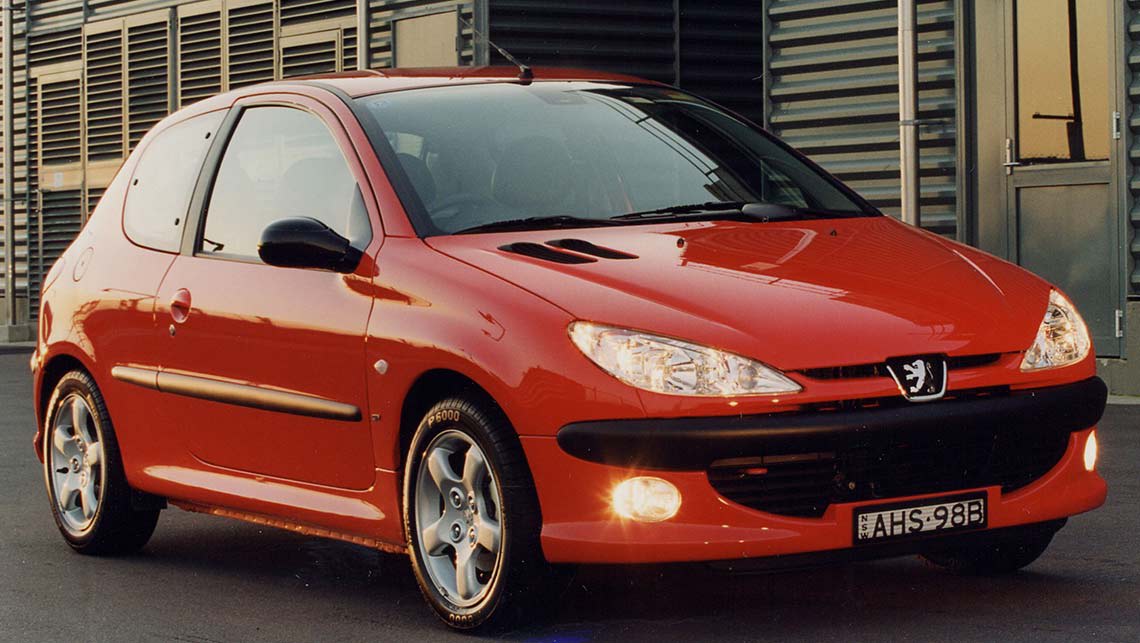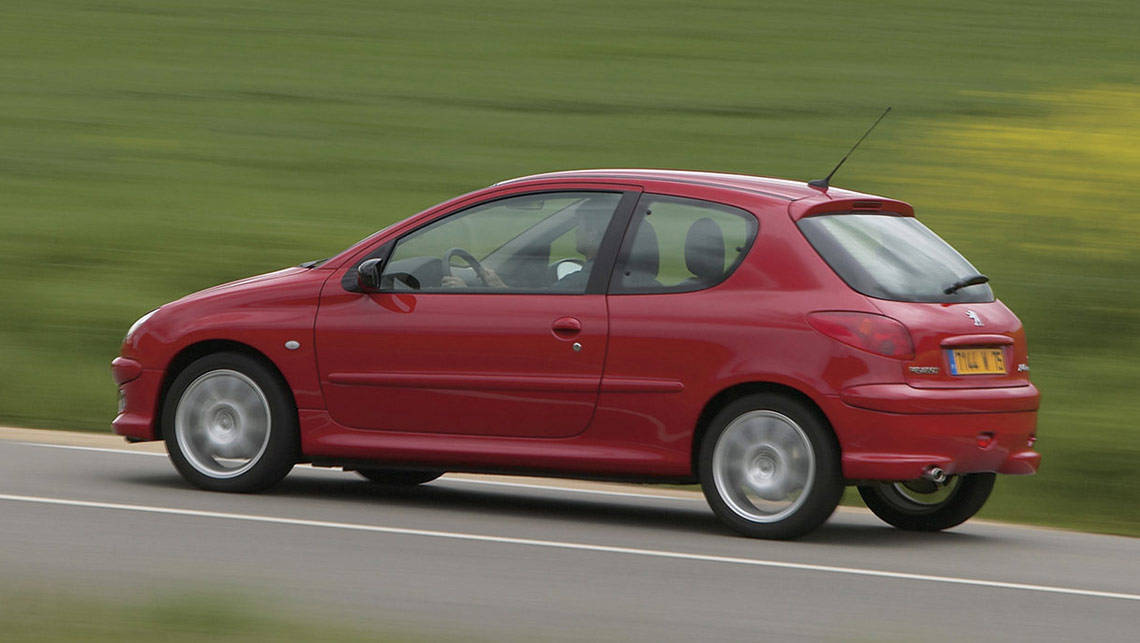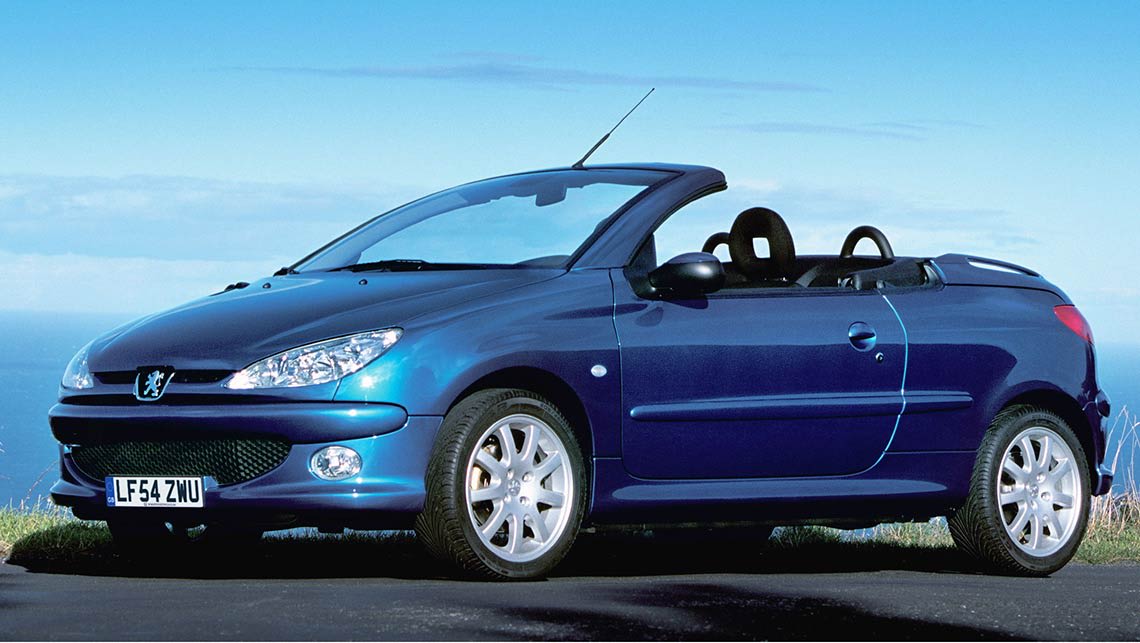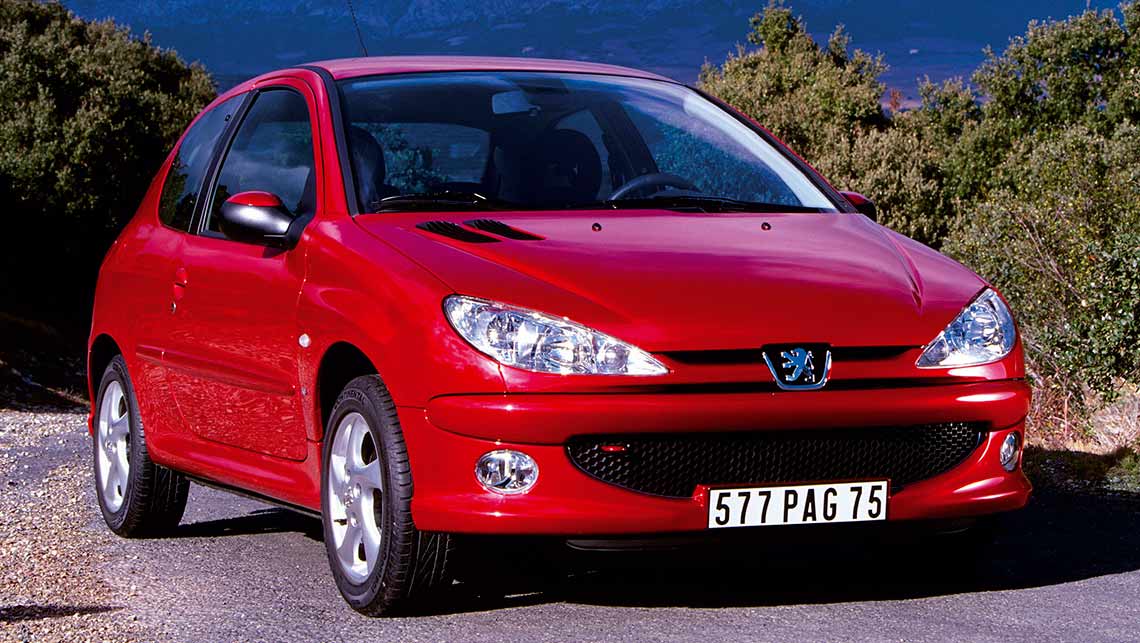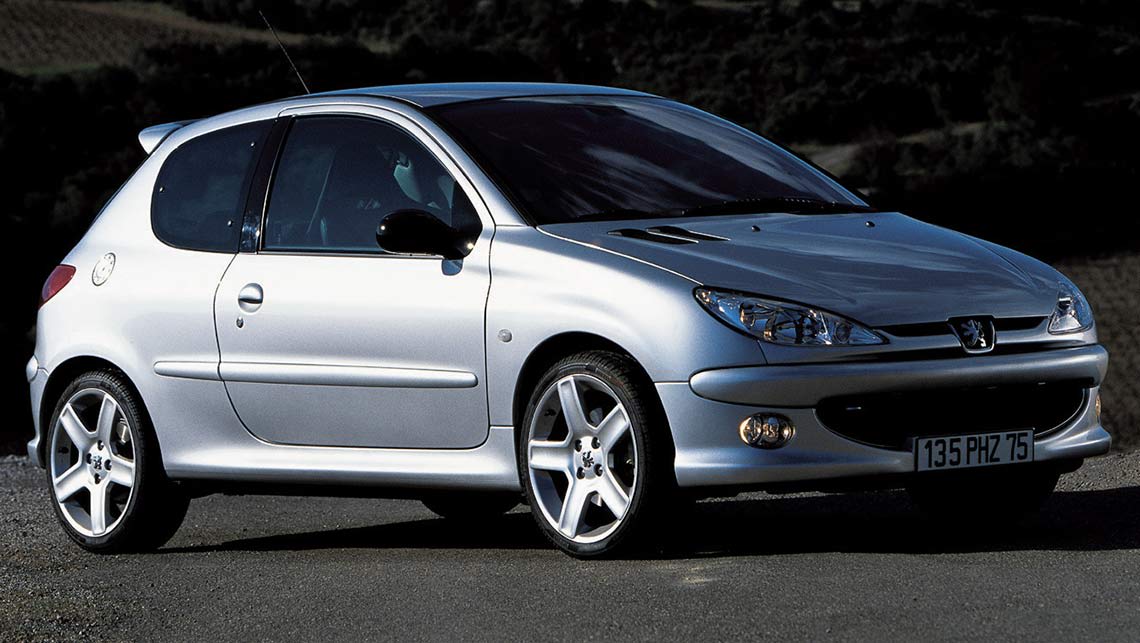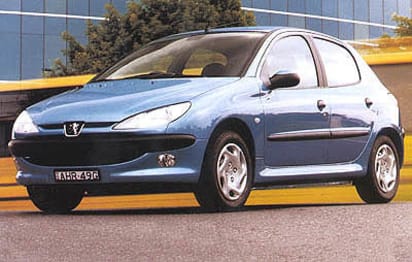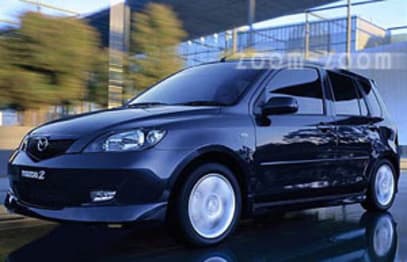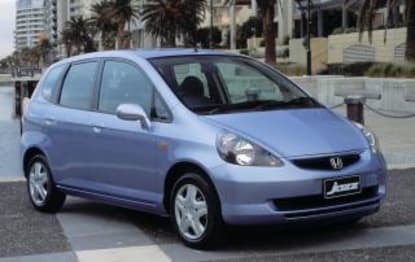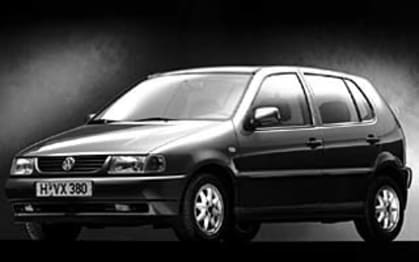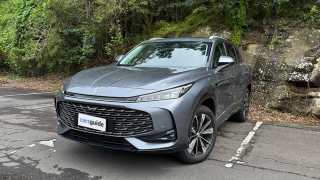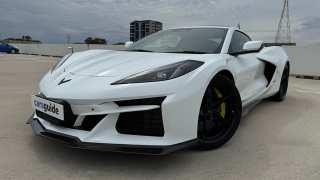
Used Peugeot 206 review: 1999-2007
- Peugeot 206
- Peugeot 206 2004
- Peugeot 206 2006
- Peugeot 206 2007
- Peugeot 206 1999
- Peugeot 206 2000
- Peugeot 206 2001
- Peugeot 206 2002
- Peugeot 206 2003
- Peugeot 206 2005
- Peugeot 206 Reviews
- Peugeot Reviews
- Peugeot Hatchback Range
- Peugeot Convertible Range
- Hatchback
- Convertible
- Peugeot
- Small Cars
- Used Car Reviews
What we like
- Chassis dynamics were impressive and compliant suspension
- Looks great
- GTi & GTi180 value for money for the driving enthusiasts
What we don't
- Automatic transmission not particularly smooth
- More expensive than rivals (when new)
- Insurance for GTi & GTi 180 attracts higher premiums
What we like
- Chassis dynamics were impressive and compliant suspension
- Looks great
- GTi & GTi180 value for money for the driving enthusiasts
What we don't
- Automatic transmission not particularly smooth
- More expensive than rivals (when new)
- Insurance for GTi & GTi 180 attracts higher premiums
The recent revival of interest in Peugeot in Australia following the launch of the European Car of the Year, the Peugeot 308, has apparently drawn attention to the rest of the French marque's range.
Cars to benefit from this new focus on Peugeot here include one of the most popular of all, the small-medium 206 that's the subject of this used-car review.
Introduced here in 1999 the Peugeot 206 sold well for the best part of 10 years, before being replaced by the Peugeot 207 in February 2007. The 206 appealed to Australian drivers looking for something offering more than low-cost Asian cars, either them or sensible but somewhat austere German machines.
The Peugeot 206 rode like a quality car and its chassis dynamics were impressive
Though it was more expensive than many in its class at the time, the Peugeot 206 rode like a quality car and its chassis dynamics were impressive, so many keen drivers were willing to pay more.
In Europe the Peugeot 206 is used by many as a family car so has good space efficiency. Though it's mainly aimed at suburban drivers in Australia the 206 can certainly be used as a long distance cruiser thanks to compliant suspension that deals with rough and ready bush roads downunder.
The styling of the baby Peugeot broke interesting new ground, with bold curves and sweeping angles. So successful was the shape of the little car that the designers eventually carried the styling theme to the rest of the Peugeot range. Interestingly, the designers of other marques picked up on the theme and the first decade of the 21st century saw the theme carried far and wide.
Peugeot 206's interior has been designed to provide a variety of passenger/luggage combinations by folding different seats as required. Most are hatchbacks with either three or five doors.
There's a sports model in the Peugeot 206 GTi, and an even quicker 206 GTi180. These not only have plenty of engine grunt, but also sports seats, 15-inch alloy wheels, firmer suspension and ABS brakes. The GTi variants cost a fair bit more, but offer decent value for money for the driving enthusiast.
The Peugeot 206CC (CC for Convertible-Coupe) was one of the earlier cars to use a solid metal roof that can turn it into a convertible at the push of a button.
Engines in the Peugeot 206 begin with a 1.4-litre unit, only sold from March 2002 and used in the lower cost variants. The 1.4 has better performance than you might expect in a car of this size, but try it for yourself, preferably with a reasonable number of people on board. Far more common is a 1.6-litre engine installed in cars from the original 1999 imports onwards.
A 2.0-litre unit, which is a very large powerplant for a car of this size and light weight, is sold in the sports GTi. That model comes in several formats; most have 100 kW or 102 kW power outputs but the GTi180 punches out a very healthy 134 kW, or 180 horsepower - hence the car's title.
Though the engine capacity in the 180 horsepower unit remains at the same 2.0 litres as on the standard 206 GTi, the 180 has variable valve timing, a twin exhaust system and quite a few detailed changes to increase efficiency. The result is a zero to 100 km/h time of a respectable seven seconds, excellent for its time.
The 2.0-litre engine is also offered in some versions of the 206CC convertible, but only in its lower-powered format. The added weight of the adaptable roof also takes the edge of the car's performance.
Most models in the Peugeot 206 range have a five-speed manual transmission as standard, with an optional four-speed automatic. From the March 2004 model update the automatic came with tiptronic-type overrides. Peugeot 206 GTi and GTi180 (thankfully) come only with the five-speed manual.
Peugeot is long established in Australia and has a strong dealer network. There's solid representation in some country areas, not just in the major metropolitan zones. Servicing costs and spare parts prices are generally reasonable and we seldom hear of any real problems with parts availability.
Insurance costs tend to sit midway up the charts of most companies. The hot 206 GTi and GTi180 attract higher premiums than the standard ones, make enquiries before you buy as there can be quite a slug on new and/or inexperienced drivers. All the more so if you're in what insurance companies call high-risk areas.
What to look for
Make sure to arrange a full inspection as Peugeots of this period don't have the build quality of Japanese cars.
Check that the roof mechanism on a 206CC works smoothly and that there are no unexpected noises during its operation. During the test drive be sure there are no wind noises from the roof when it's closed. Full replacement of the roof can cost many thousands of dollars.
Look for severe tyre wear on a GTi and also for a lot of dust buildup on the wheels. Check for the dust behind the wheels as a smart seller will have cleaned the obviously visible areas at the front.
Engines are generally smooth so be suspicious of one that's on the rocky side, particularly when first started from cold. Manual gearboxes should be reasonably light and easy in their movements. On that's stiff or noisy should be treated with suspicion. Third-to-second gear changes are usually the first to suffer, so try some fast changes to test it.
Automatics aren't the smoothest around, if you're unsure on the unit you're testing it makes sense to call a professional. Check the complete interior, paying special attention to the condition of the seats as they don't always stand up to the rigours of rough treatment by bored kids.
Car buying tip
Model for model, spare parts for Australian-built cars are generally lower priced than those for imports.
Pricing
| Year | Price From | Price To |
|---|---|---|
| 2007 | $2,310 | $9,350 |
| 2006 | $2,040 | $7,920 |
| 2005 | $2,040 | $7,920 |
| 2004 | $2,040 | $7,920 |
| 2003 | $2,310 | $7,150 |
| 2002 | $2,040 | $5,720 |
| 2001 | $2,040 | $5,720 |
| 2000 | $2,420 | $4,070 |
| 1999 | $2,420 | $4,070 |
Pricing guides
Range and Specs
| Vehicle | Specs | Price* | |
|---|---|---|---|
| XR | 1.6L, PULP, 4 SP AUTO | $2,420 – 3,850 | 1999 Peugeot 206 1999 XR Pricing and Specs |
| XT | 1.6L, PULP, 4 SP AUTO | $2,640 – 4,070 | 1999 Peugeot 206 1999 XT Pricing and Specs |
| GTi | 2.0L, PULP, 5 SP MAN | $2,530 – 3,960 | 1999 Peugeot 206 1999 GTi Pricing and Specs |
Other cars to consider
$2,530
Lowest price, based on third party pricing data


